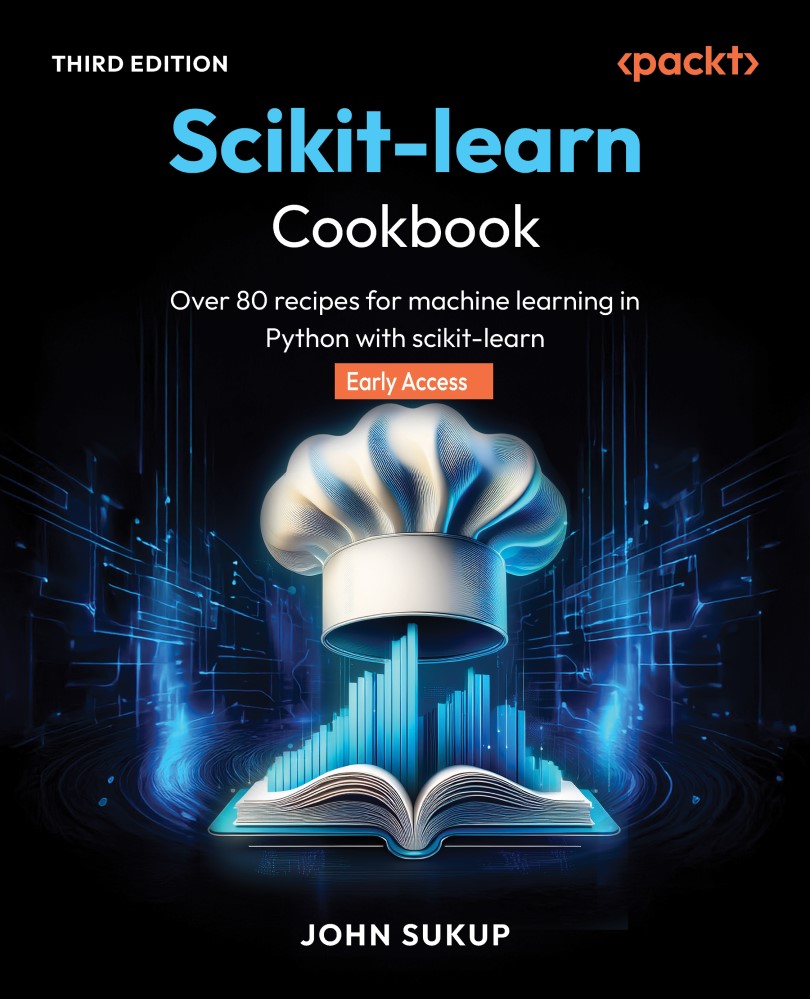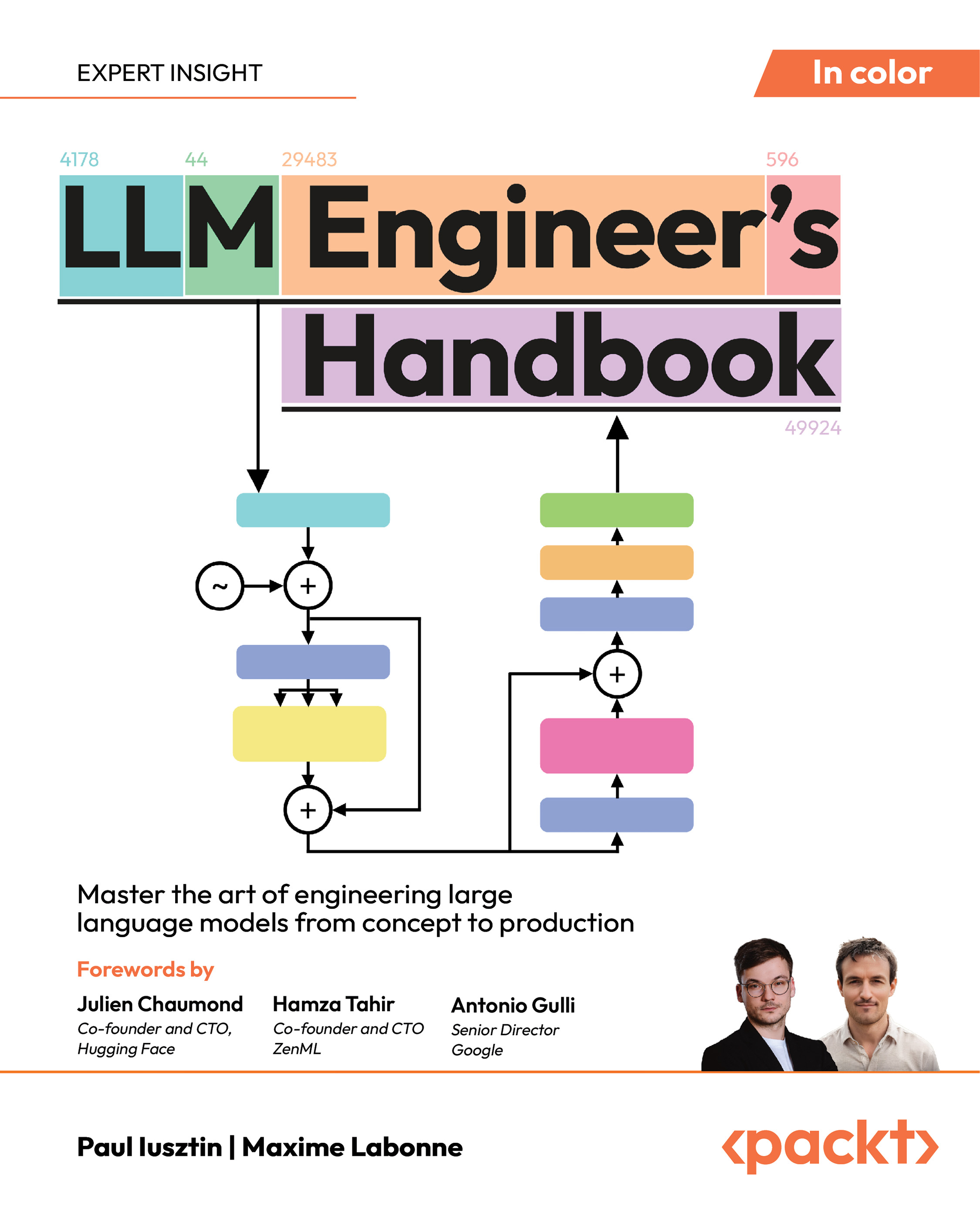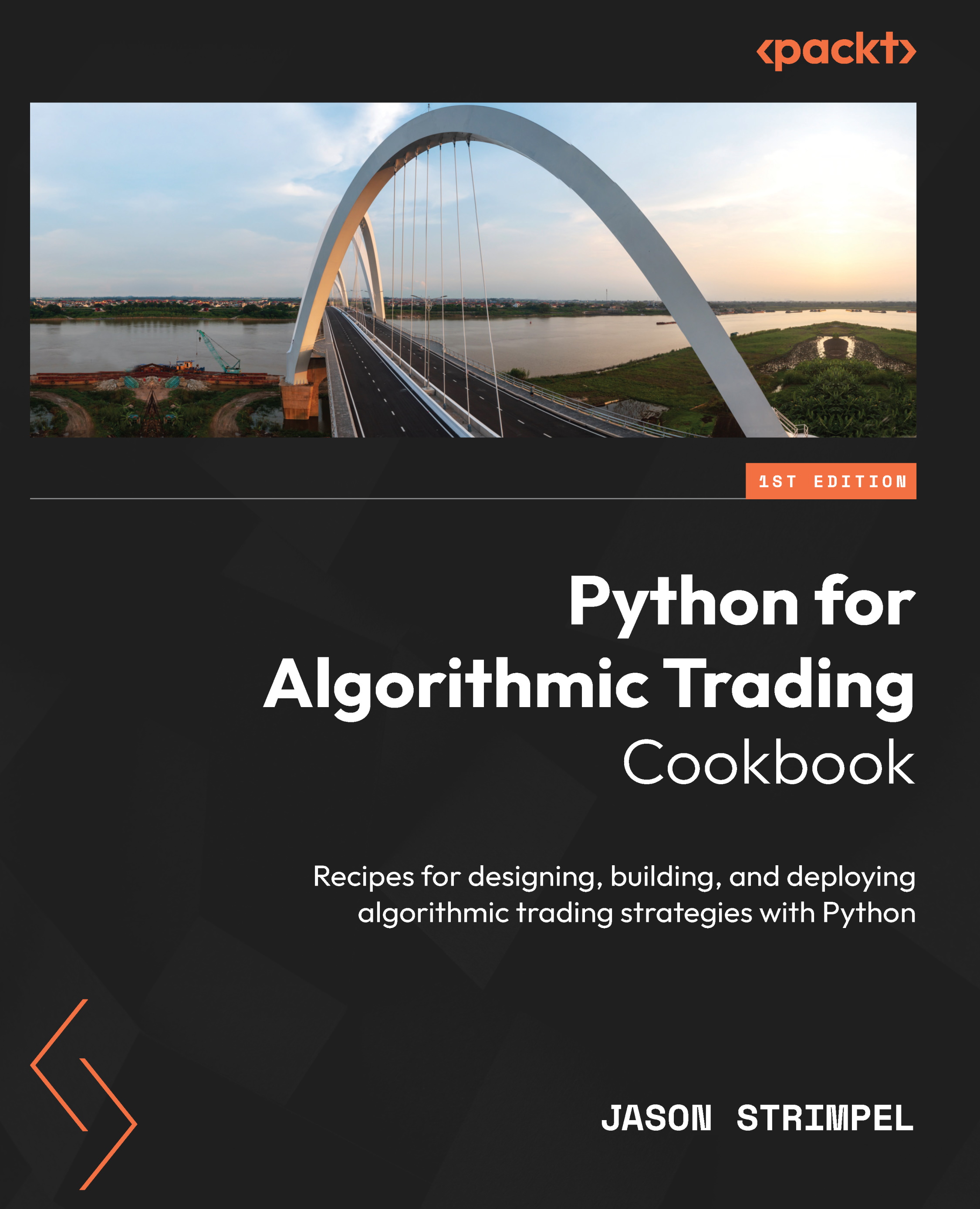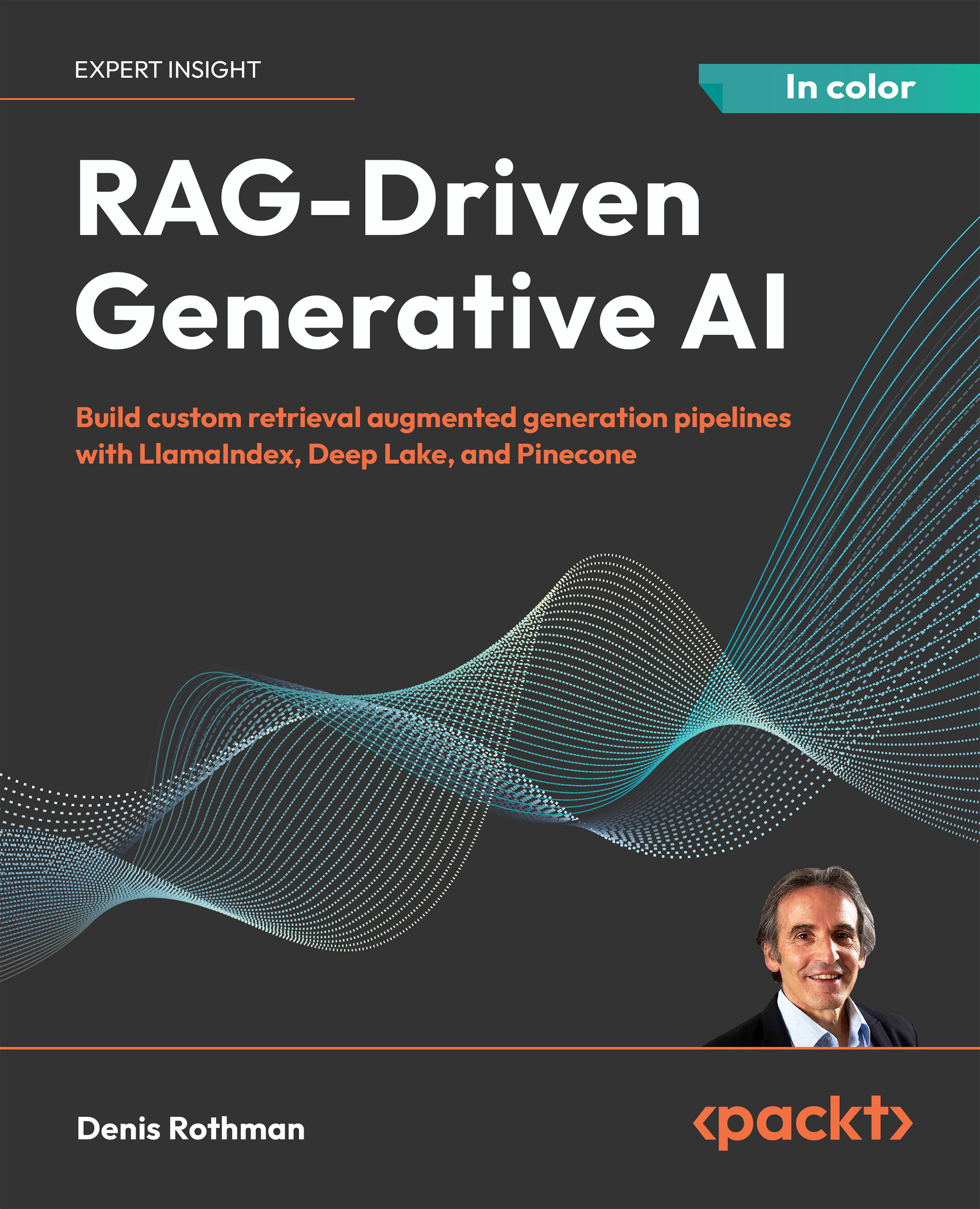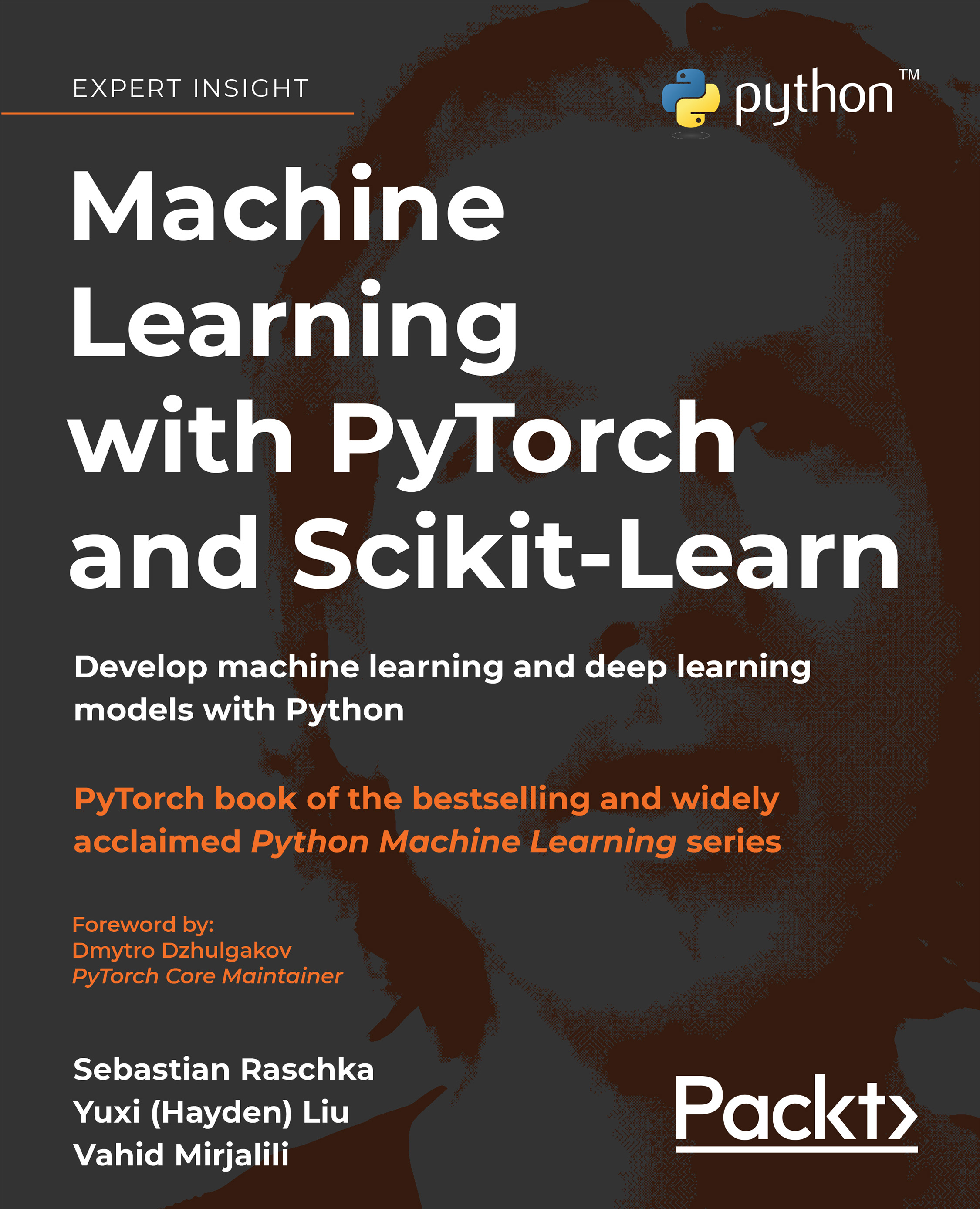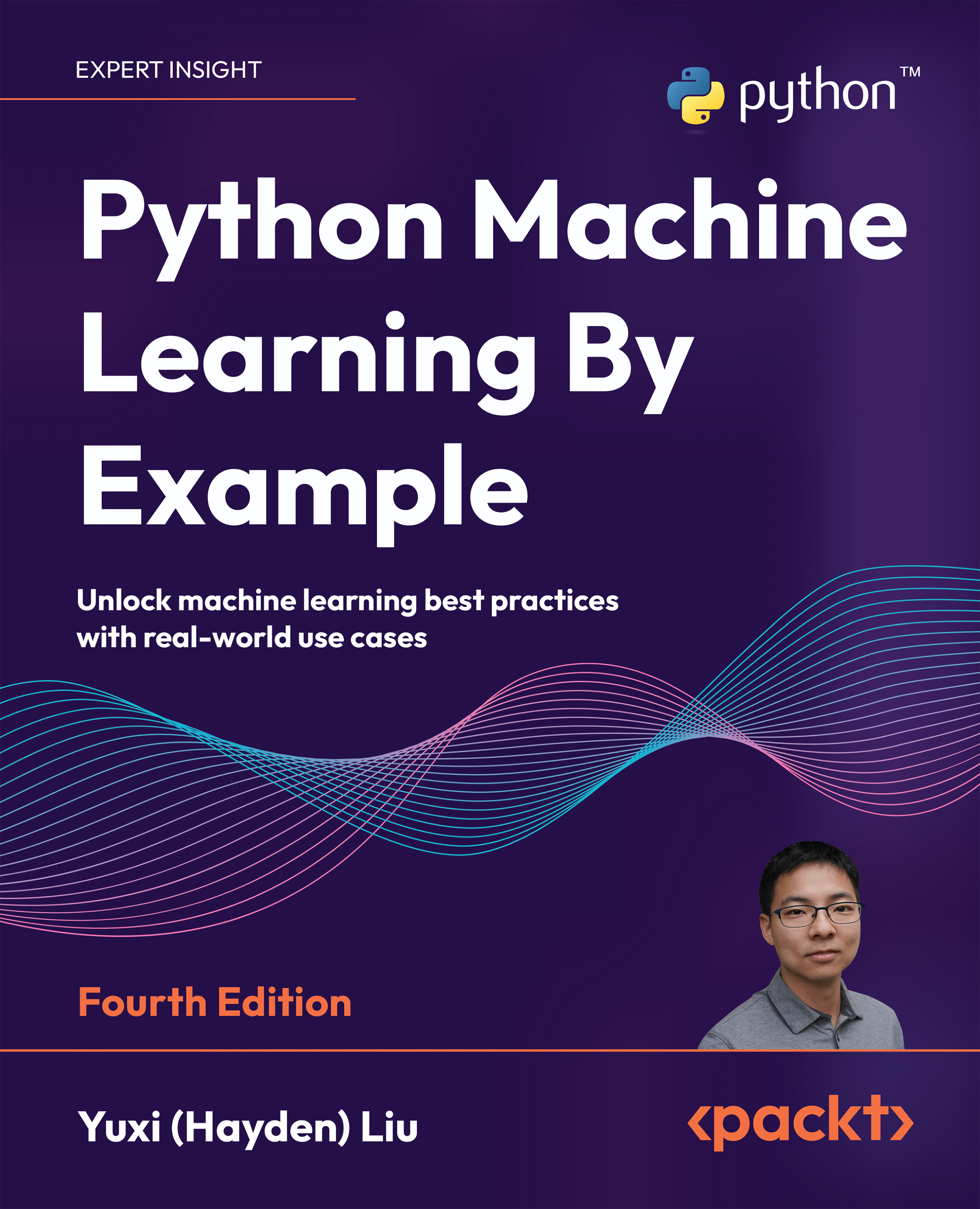 Early Access
Early Access
Publishing in
Sep 2025
$19.99
per month
Paperback
Sep 2025
414 pages
3rd Edition
-
Solve complex business problems with data-driven approaches
-
Master tools associated with developing predictive/prescriptive models
-
Build robust ML pipelines for real-world applications
-
Avoid common pitfalls in ML pipeline development
-
Learn comprehensive, hands-on recipes tailored to Scikit-Learn version 1.5
-
Master ML with real-world examples and Scikit-Learn 1.5 features
Scikit-Learn is a powerful, open-source ML library for Python that provides simple and efficient tools for model development and deployment. Data scientists, ML engineers, and software developers learn Scikit-Learn because it offers a versatile, user-friendly framework for implementing a wide range of ML algorithms, enabling efficient development and deployment of predictive models in real-world applications.
Scikit-learn Cookbook (3rd Edition) takes the reader on a journey from understanding the fundamentals of ML and data preprocessing, through implementing advanced algorithms and techniques, to deploying and optimizing ML models in production. Along the way, readers will explore practical, step-by-step recipes that cover everything from feature engineering and model selection to hyperparameter tuning and model evaluation, all using Scikit-Learn.
By the end of this book, readers will have the knowledge and skills to confidently build, evaluate, and deploy sophisticated ML models using Scikit-Learn, enabling them to tackle a wide range of data-driven challenges.
Are you a data scientist, machine learning, or software development professional looking to deepen their understanding of advanced ML techniques? Then this book is for you! To get the most out of this book, you should have a proficiency in Python programming and familiarity with commonly used ML libraries (e.g., pandas, NumPy, matplotlib, sciPy, etc.) Additionally, an understanding of basic ML concepts, like linear regression, decision trees, and model evaluation metrics is helpful. Familiarity with mathematical concepts such as linear algebra, calculus, and probability is also invaluable.
-
Implement a variety of ML algorithms, from basic classifiers to complex ensemble methods, using Scikit-Learn
-
Perform data preprocessing, feature engineering, and model selection to prepare datasets for optimal model performance
-
Optimize ML models through hyperparameter tuning and cross-validation techniques to improve accuracy and reliability
-
Deploy ML models for scalable, maintainable real-world applications
-
Evaluate and interpret models with advanced metrics and visualizations in Scikit-Learn
 United States
United States
 Great Britain
Great Britain
 India
India
 Germany
Germany
 France
France
 Canada
Canada
 Russia
Russia
 Spain
Spain
 Brazil
Brazil
 Australia
Australia
 Singapore
Singapore
 Canary Islands
Canary Islands
 Hungary
Hungary
 Ukraine
Ukraine
 Luxembourg
Luxembourg
 Estonia
Estonia
 Lithuania
Lithuania
 South Korea
South Korea
 Turkey
Turkey
 Switzerland
Switzerland
 Colombia
Colombia
 Taiwan
Taiwan
 Chile
Chile
 Norway
Norway
 Ecuador
Ecuador
 Indonesia
Indonesia
 New Zealand
New Zealand
 Cyprus
Cyprus
 Denmark
Denmark
 Finland
Finland
 Poland
Poland
 Malta
Malta
 Czechia
Czechia
 Austria
Austria
 Sweden
Sweden
 Italy
Italy
 Egypt
Egypt
 Belgium
Belgium
 Portugal
Portugal
 Slovenia
Slovenia
 Ireland
Ireland
 Romania
Romania
 Greece
Greece
 Argentina
Argentina
 Netherlands
Netherlands
 Bulgaria
Bulgaria
 Latvia
Latvia
 South Africa
South Africa
 Malaysia
Malaysia
 Japan
Japan
 Slovakia
Slovakia
 Philippines
Philippines
 Mexico
Mexico
 Thailand
Thailand
